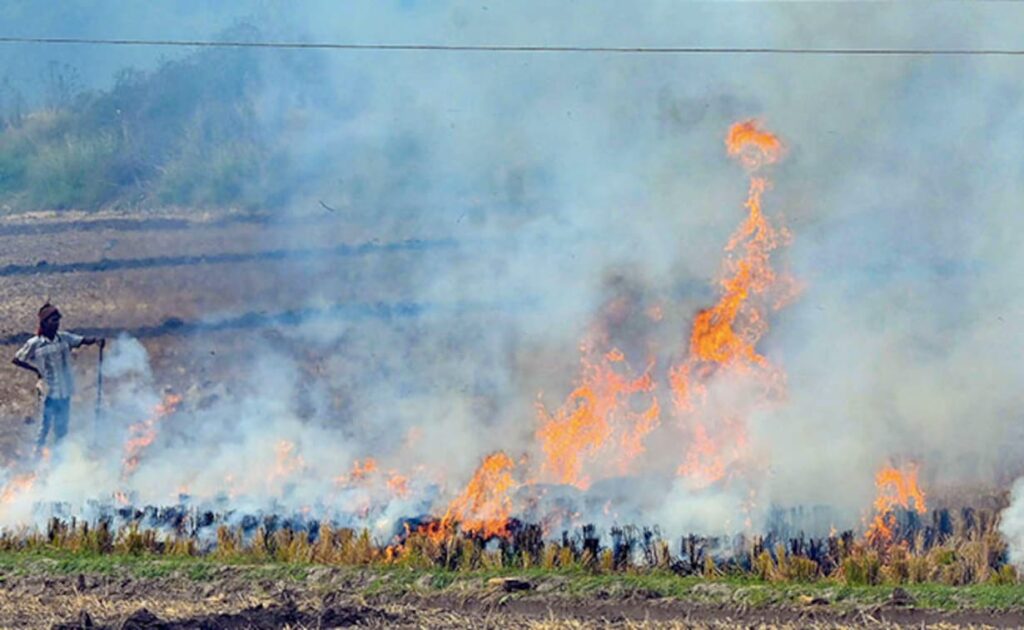Fact News Service
New Delhi, June 12
The Union agriculture ministry has urged Punjab to proactively plan and implement measures to tackle stubble burning during the October-November harvest season. During a meeting in New Delhi, Secretary of Agriculture Manoj Ahuja met with Punjab officials led by Special Chief Secretary KAP Sinha and Punjab Agricultural University (PAU) Vice-Chancellor SS Gosal, emphasizing the need for a comprehensive plan.
Stubble burning significantly contributes to air pollution, especially during the winter months, creating a smog blanket over North Indian states, particularly impacting the national capital region.
During the paddy harvest season, Punjab generates around 20 million tonnes of paddy straw, including 3.3 million tonnes of stubble, notably of the aromatic basmati variety. The state government currently manages approximately 11.5 million tonnes through in-situ methods and 4.67 million tonnes through ex-situ measures.
Official figures from the Punjab Pollution Control Board (PPCB) and the Punjab Remote Sensing Centre (PRSC) show a 26% decrease in farm fire incidents last season. However, the area under stubble burning increased to 19 lakh acres in 2023 from 15 lakh acres in 2022.
State agriculture officials informed the Centre that applications for subsidized machinery for in-situ stubble management have been solicited, with 11,000 farmers having applied thus far. The goal is to have 25,000 to 26,000 farmers apply by the June 20 deadline.
PAU Vice-Chancellor Gosal mentioned the involvement of experts from the International Rice Research Institute (IRRI) in guiding research on rice varieties during the meeting, emphasizing the importance of advanced planning to combat crop residue burning.
Earlier, the state department requested a ₹500 crore grant from the Centre for stubble management, with the Union agriculture ministry requesting a requisition. Under the new funding norms, effective from the previous harvest season, the Centre and state will contribute 60% and 40%, respectively, towards paddy stubble management, marking a shift from the previous 100% grant by the Centre under the Crop Residue Management (CRM) program initiated in 2018.













